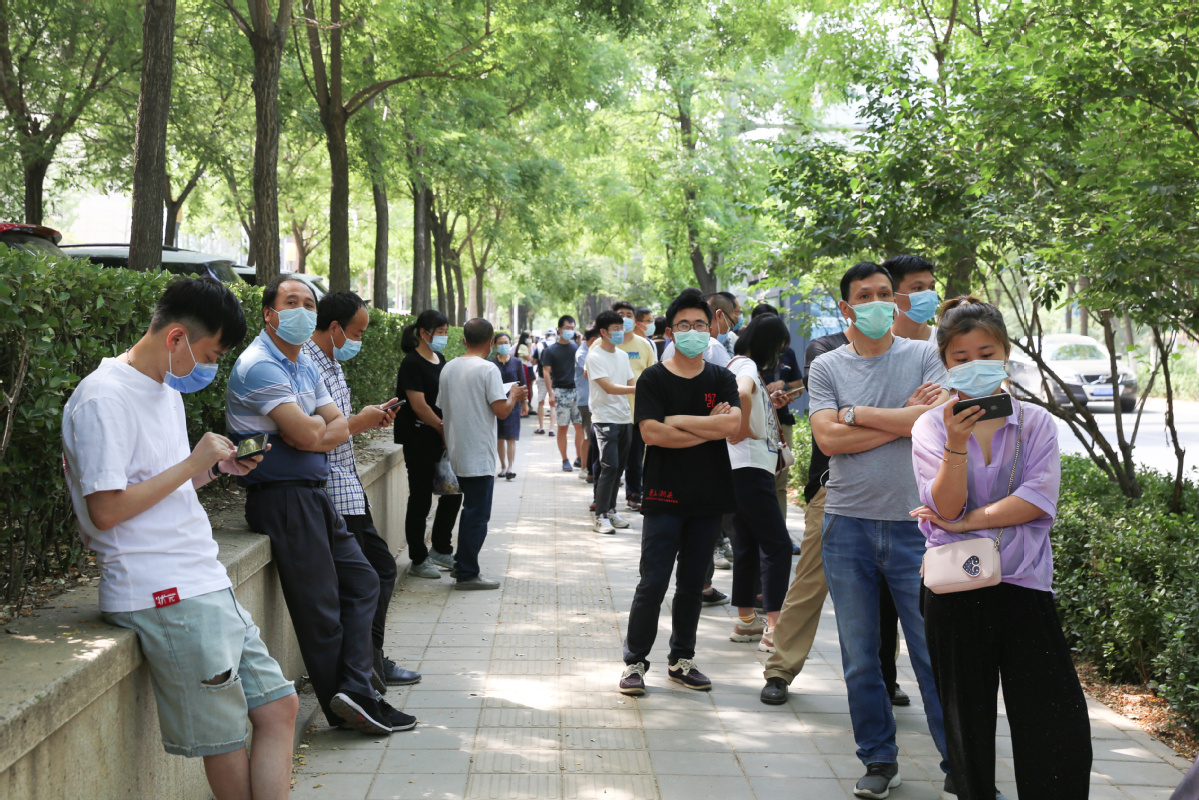
People queue to have a COVID-19 nucleic acid test in Changping district, Beijing, on June 18, 2020. (Photo: China Daily)
A downpour on Thursday afternoon did not halt nucleic acid testing for the novel coronavirus in Beijing's Haidian district.
As the rain fell, several buses carrying dozens of people from across the district arrived at a testing station near the West Fourth Ring Road.
Fifty medics from hospitals in Haidian, divided into 10 groups, worked under tents, taking residents' throat swabs, registering their information, and putting the samples away in a protected storage box. The box would later be transported to a local disease control and prevention center for analysis in the next two days.
In the afternoon, about 1,000 district residents took the tests, a requirement because they had ties to markets where infections spread, were close contacts of those people or live in areas designated as medium-or high-risk.
The effort is part of a massive screening campaign across the capital aimed at detecting those with evidence of exposure to COVID-19 in an effort to cut off the virus' further spread.
Taking a throat swab can take only a few seconds, said Wang Lei, deputy director of the sampling testing location. But it's not always that easy.
"Children and the elderly are the most difficult group for throat swabs, since they are more prone to nausea and sneezing," said Wang, who is also a physician at Beijing Zhongguancun Hospital.
Since Saturday, the testing site, encompassing 12 tents, has been operating from 8 am to midnight. The medics work in shifts of eight hours a day, with a break every hour and a half. While on duty, the sampling workers wear heavy protective suits and face masks.
"On previous days that were scorching hot, some exhibited symptoms of heat exhaustion," Wang said.
When the sampling is finished every day, the area has to be thoroughly cleaned and disinfected, he said.
One of those waiting to be tested was Ji Jingkun, 49, a worker at Furongli nursing home.
"Since we often go to different places to buy groceries while the elderly stay in the nursing home, it's vital for us to take the tests because the aged are more vulnerable," she said.
Because the investigation into the origin and what's driving the latest outbreak in Beijing is still going on, massive and quick screening covering all considered to be at risk is necessary to curb the epidemic, according to the nation's top epidemiologist, Wu Zunyou.


